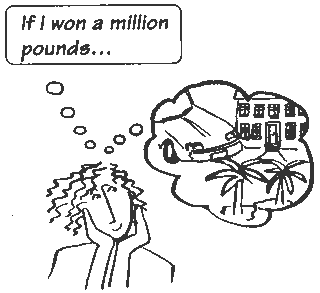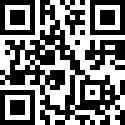Unit 37. If I do… and If I did…
(использование оборотов If I do … и If I did …)
Compare these examples:
|
|
|
|
When you imagine something like this, you use if + past (if I found / if you were / if we didn't etc.). But the meaning is not past:
|
 |
We do not normally use would in the if-part of the sentence:
- I'd be very frightened if somebody pointed a gun at me. (not ‘if somebody would point’)
- If I didn't go to their party, they'd be offended. (not ‘If I wouldn't go’)
But it is possible to say ‘if… would’ when you ask somebody to do something:
- (from a formal letter) I would be grateful if you would send me your brochure as soon as possible.
- ‘Shall I close the door?’ ‘Yes, please, if you would.’
In the other part of the sentence (not the if-part) we use would ('d) / wouldn't:
- If you took more exercise, you'd (= you would) probably feel healthier.
- Would you mind if I used your phone?
- I'm not tired enough to go to bed yet. I wouldn't sleep (if I went to bed now).
Could and might are also possible:
- If you took more exercise, you might feel healthier. (= it is possible that you would feel healthier)
- If it stopped raining, we could go out. (= we would be able to go out)
Do not use when in sentences like those on this page:
- They would be offended if we didn't accept their invitation. (not ‘when we didn't’)
- What would you do if you were bitten by a snake? (not ‘when you were bitten’)
For if and when see also
Unit 25 When I do/ When I've done When and if
(использование оборотов when I do, when I've done, when, if).
See Unit 38 If I knew … I wish I knew …
(использование оборотов If I knew … и I wish I knew …)
See Unit 39 If I had known … I wish I had known …
(использование оборотов If I had known … и I wish I had known …)
See Unit 40 Would I wish … would
(использование данных оборотов)
![агентство Лангуст [переход на главную] Агентство Лангуст [переход на главную]](/pic/logo.gif)

